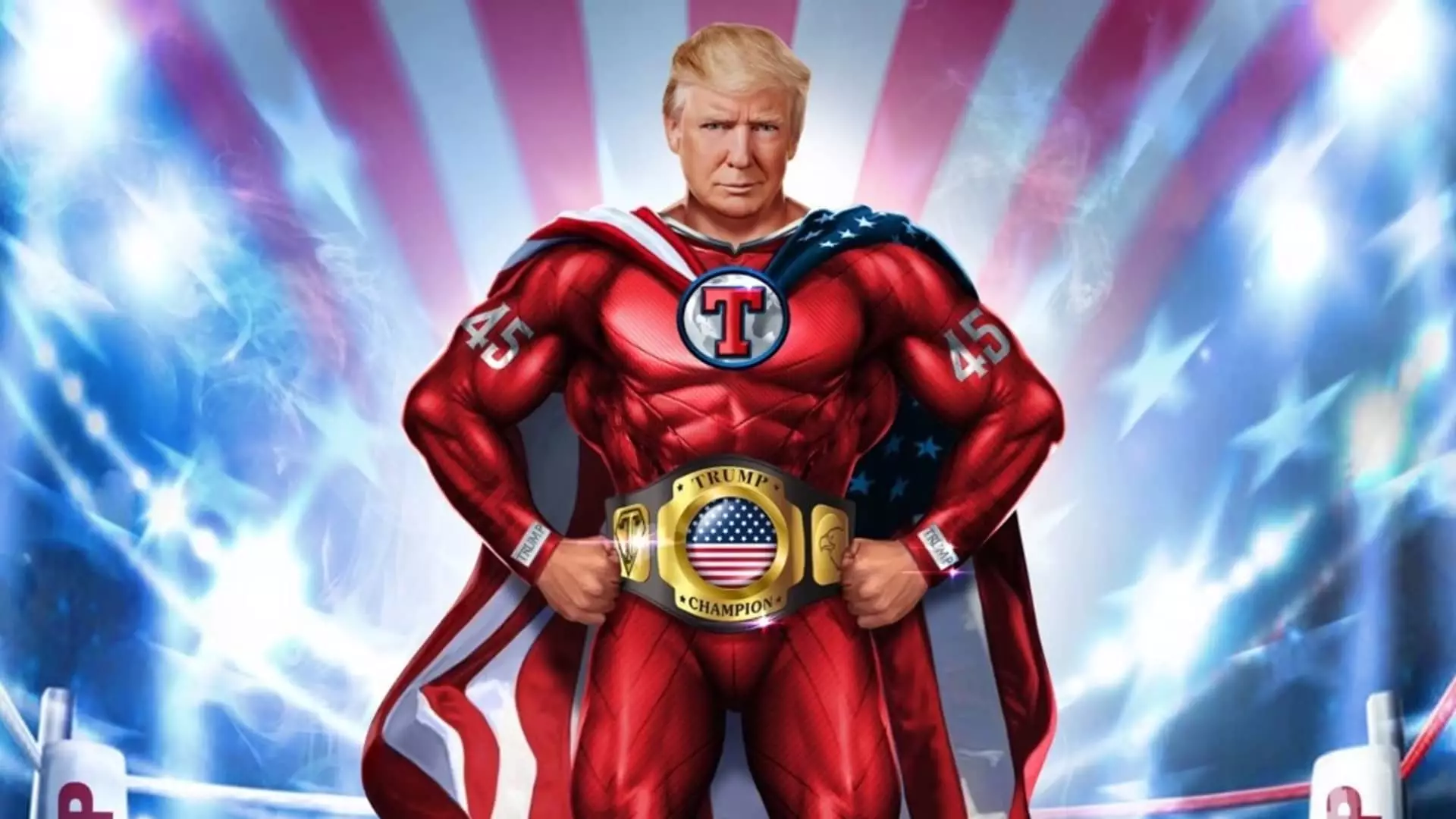The intersection of politics and finance has always yielded intriguing developments, and in the contemporary era, cryptocurrency serves as a fresh stage for such dynamics. With Donald Trump, a figure synonymous with both controversy and innovation, now embracing the world of cryptocurrencies, his latest venture—World Liberty Financial (WLF)—is capturing the attention of investors and skeptics alike. As the former president prepares for a crucial election and promotes WLF’s cryptocurrency, the implications and operations of this initiative are worth delving into.
Trump’s announcement of WLFI, the token associated with WLF, comes amid a notable rebound in his social media company’s stock, which has experienced considerable volatility. This new cryptocurrency venture aims to position itself as a “crypto bank,” providing customers the tools to borrow, lend, and invest in cryptocurrencies. However, this venture raises numerous questions—primarily about its operational framework and the risks involved for potential investors.
Despite the hype surrounding the token launch, essential details about the project remain scarce. The absence of a formal white paper or comprehensive business plan leaves prospective investors in a state of uncertainty. A few specifications about voting rights for WLFI token holders have been disclosed, but these details do little to clarify how funds will be utilized or what safeguards will be implemented to protect investors.
The ambitious goal of raising $300 million at a valuation of $1.5 billion highlights the high-stakes nature of this initiative. It suggests a brisk initial offering, yet one must consider whether the projected revenue, which currently hovers below $1 million per quarter for Trump’s media group, justifies such a lofty market valuation.
Complicating the investment landscape is the nature of WLFI being a Regulation D token offering. This stipulates a requirement to limit the sale’s size and restrict access primarily to accredited investors, who must meet specific net worth criteria. This restriction raises further eyebrows—do these conditions hint at potential exclusivity benefiting the select few rather than the broader public seeking transparency in the cryptocurrency market?
Moreover, Trump’s ownership of over half of the DJT shares—and potentially undisclosed stakes in WLF—raises questions about conflicts of interest. While transparency about investors’ rights is expected in financial projects, the vague communication surrounding WLFI could deter cautious investors and tarnish credibility, especially considering Trump’s contentious political narrative.
As discussions around WLF intensified, significant skepticism emerged from the crypto community. During a recent X Spaces conversation, co-founder Zachary Folkman attempted to clarify the project’s intentions, labeling WLFI as a governance token that would allow holders to vote on future protocol decisions. However, he quickly emphasized that token ownership “isn’t equity” and bears limitations regarding its economic rights. This distinction could lead to disappointment among investors expecting substantial benefits from their participation in what is portrayed as a lucrative venture.
Further complicating matters, the involvement of partners like Folkman—who links back to past projects marred by security breaches—adds to the community’s reticence. Analysts and potential investors have expressed discomfort over this association, questioning the project’s integrity and its founders’ credibility. Concerns have arisen regarding the implications of the partnership with Aave, an established decentralized finance platform. While collaboration with reputable entities can serve as a boon, the precarious background of WLF’s leadership may taint this relationship and endanger the reputation of established platforms.
As the launch date for WLFI approaches, the critical eye of both investors and regulators will remain trained on World Liberty Financial. Questions surrounding transparency, regulatory compliance, and the solid backing of the initiative will determine its viability in a competitive market inundated with cryptocurrency projects. The blending of financial ambition with the political aspirations of Donald Trump raises crucial questions about ethical standards and market integrity.
Investors face a complex decision-making space—will they perceive WLFI as a genuine opportunity to engage in innovative finance, or view it as another political maneuver clouded by dubious intentions? As this venture unfolds, it will serve as a barometer for how political figures leverage financial technologies and how the market responds to their innovative but often controversial propositions.


Leave a Reply